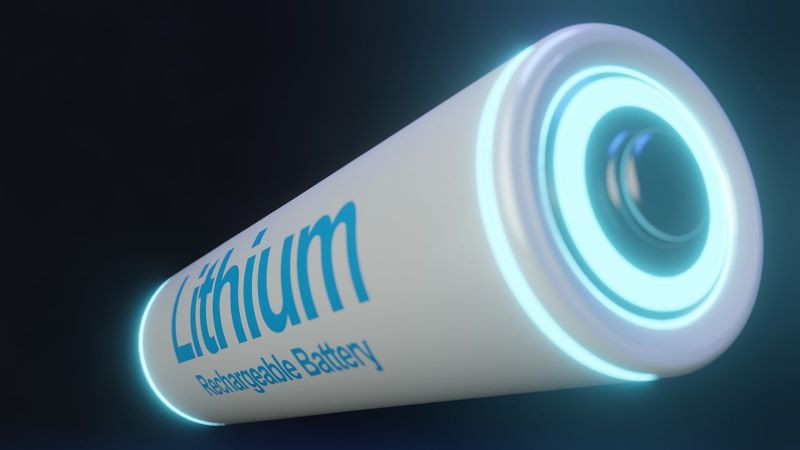
Future electric cars to run on super battery made of rock
batteries within ten years, providing an environmentally friendly, more efficient, and safer alternative. Researchers at the Technical University of Denmark (DTU) have patented a new superionic material based on potassium silicate, a mineral extracted from ordinary rocks. The lithium-ion battery, currently the most widely used in electric cars, has limitations in terms of capacity, safety, and availability. Lithium is expensive, environmentally harmful, and scarce, potentially hindering the green transition of car transport. “With more people switching to electric cars, there is a need for lithium-free batteries that are as efficient, eco-friendly, and cheaper to produce,” said a DTU spokesperson. New materials for the battery’s anode, cathode, and electrolyte, as well as new designs, are required. DTU researcher Mohamad Khoshkalam has developed a material that could replace lithium in future batteries: solid-state batteries based on potassium and sodium silicates. These common minerals are found in rocks and are not sensitive to air and humidity, making them suitable for thin layers inside batteries. “The potential of potassium silicate as a solid-state electrolyte has been known for a long time but was ignored due to challenges with the size and weight of potassium ions,” said Khoshkalam. Solid-state batteries allow ions to move between the battery’s anode and cathode through a solid material, unlike liquid electrolytes. This could enhance battery efficiency and safety. Khoshkalam’s superionic material of potassium silicate allows ions to move faster than in lithium-based electrolytes. Khoshkalam said, “The first measurement with a battery component revealed very good conductivity as a solid-state electrolyte.” Both researchers and electric car manufacturers see solid-state batteries as the future. Toyota plans to launch an electric car with a lithium solid-state battery by 2027-28. However, scaling up the technology remains a challenge, as it is complex and expensive. Solid-state batteries offer several advantages, including faster ion movement and increased efficiency. They can be made as thin as a piece of cardboard, allowing for more powerful batteries that take up less space. This could enable electric cars to drive up to 1,000 km on a single 10-minute charge. Despite the promise, the technology has a low Technology Readiness Level (TRL) and faces many technical challenges. It may take ten years before these batteries are commercially available. “We have shown that we can find a material for a solid-state electrolyte that is cheap, efficient, eco-friendly, and scalable—and that performs better than lithium-based electrolytes,” said Khoshkalam. Khoshkalam has patented the material and is establishing the start-up K-Ion to develop solid-state electrolyte components for battery companies. The next step is to create a demo battery to show companies and potential investors, with a prototype expected within 1-2 years.

batteries within ten years, providing an environmentally friendly, more efficient, and safer alternative. Researchers at the Technical University of Denmark (DTU) have patented a new superionic material based on potassium silicate, a mineral extracted from ordinary rocks. The lithium-ion battery, currently the most widely used in electric cars, has limitations in terms of capacity, safety, and availability. Lithium is expensive, environmentally harmful, and scarce, potentially hindering the green transition of car transport. “With more people switching to electric cars, there is a need for lithium-free batteries that are as efficient, eco-friendly, and cheaper to produce,” said a DTU spokesperson. New materials for the battery’s anode, cathode, and electrolyte, as well as new designs, are required. DTU researcher Mohamad Khoshkalam has developed a material that could replace lithium in future batteries: solid-state batteries based on potassium and sodium silicates. These common minerals are found in rocks and are not sensitive to air and humidity, making them suitable for thin layers inside batteries. “The potential of potassium silicate as a solid-state electrolyte has been known for a long time but was ignored due to challenges with the size and weight of potassium ions,” said Khoshkalam. Solid-state batteries allow ions to move between the battery’s anode and cathode through a solid material, unlike liquid electrolytes. This could enhance battery efficiency and safety. Khoshkalam’s superionic material of potassium silicate allows ions to move faster than in lithium-based electrolytes. Khoshkalam said, “The first measurement with a battery component revealed very good conductivity as a solid-state electrolyte.” Both researchers and electric car manufacturers see solid-state batteries as the future. Toyota plans to launch an electric car with a lithium solid-state battery by 2027-28. However, scaling up the technology remains a challenge, as it is complex and expensive. Solid-state batteries offer several advantages, including faster ion movement and increased efficiency. They can be made as thin as a piece of cardboard, allowing for more powerful batteries that take up less space. This could enable electric cars to drive up to 1,000 km on a single 10-minute charge. Despite the promise, the technology has a low Technology Readiness Level (TRL) and faces many technical challenges. It may take ten years before these batteries are commercially available. “We have shown that we can find a material for a solid-state electrolyte that is cheap, efficient, eco-friendly, and scalable—and that performs better than lithium-based electrolytes,” said Khoshkalam. Khoshkalam has patented the material and is establishing the start-up K-Ion to develop solid-state electrolyte components for battery companies. The next step is to create a demo battery to show companies and potential investors, with a prototype expected within 1-2 years.
